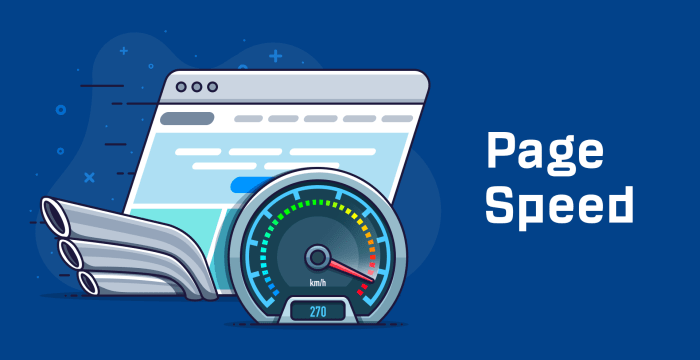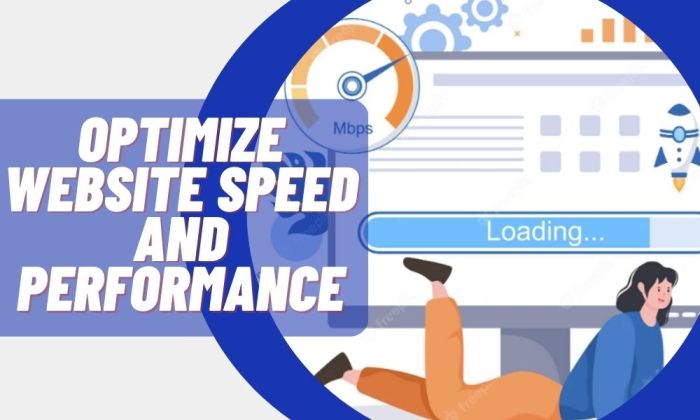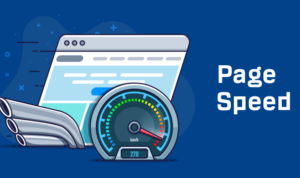Kicking off with Optimizing Website Speed, this topic delves into the crucial aspects of website speed optimization, shedding light on the impact slow loading times have on user experience and search engine rankings. Get ready to rev up your site’s speed for maximum impact!
Importance of Website Speed Optimization: Optimizing Website Speed
Optimizing website speed is vital for online success in today’s fast-paced digital world. A slow-loading website can lead to high bounce rates, decreased user engagement, and ultimately, loss of potential customers.
Negative Impact of Slow Loading Times, Optimizing Website Speed
Slow loading times can have a significant negative impact on user experience. For example, users are more likely to abandon a website if it takes more than a few seconds to load. This can result in lost sales, reduced conversions, and ultimately harm the overall reputation of the website.
Correlation Between Website Speed and Search Engine Rankings
There is a strong correlation between website speed and search engine rankings. Search engines like Google consider page speed as one of the ranking factors. A faster website not only provides a better user experience but also improves search engine visibility, leading to higher organic traffic and better overall performance in search results.
Factors Affecting Website Speed

When it comes to website speed, there are several key factors that can affect how quickly a webpage loads for users. Let’s dive into some of the main factors that contribute to slow website loading times.
Impact of Large Image Files
Large image files can significantly slow down a website’s loading speed. When high-resolution images are used without optimization, they can take longer to download, especially on slower internet connections. This can lead to a poor user experience and higher bounce rates as visitors may get frustrated waiting for the page to load. To improve website speed, it’s crucial to compress images and use the appropriate file formats to reduce their size without sacrificing quality.
Server Performance Influence
Another crucial factor that can influence website loading speed is server performance. The server where a website is hosted plays a vital role in how quickly content can be delivered to users. A slow or overloaded server can lead to delays in processing user requests, resulting in longer loading times. To optimize website speed, it’s important to invest in reliable hosting services with fast servers and sufficient resources to handle incoming traffic efficiently.
Strategies for Optimizing Website Speed

Minimizing HTTP Requests:
One effective technique for optimizing website speed is to minimize the number of HTTP requests made when a user visits a webpage. This can be achieved by combining multiple files, such as CSS and JavaScript files, into one. By reducing the number of requests, the loading time of the webpage can be significantly improved.
Benefits of Caching
Caching plays a crucial role in enhancing website speed by storing static files, such as images, CSS, and JavaScript, on the user’s device. This means that when a user revisits the website, these files do not need to be reloaded from the server, resulting in faster load times. Implementing caching mechanisms can lead to a smoother user experience and improved website performance.
Minimizing JavaScript and CSS Files
Another strategy for optimizing website speed is to minimize the number of JavaScript and CSS files used on a webpage. Excessive use of these files can slow down the loading time, as each file requires a separate HTTP request. By consolidating and minifying these files, unnecessary code can be removed, leading to faster loading speeds and improved website performance.
Tools for Measuring Website Speed
When it comes to optimizing website speed, using the right tools to measure loading times is crucial for ensuring a seamless user experience. These tools provide valuable insights into the performance of your website and help identify areas for improvement.
Google PageSpeed Insights
Google PageSpeed Insights is a popular tool that analyzes the content of a web page and generates suggestions to make that page faster. It provides a score based on a set of performance best practices and offers detailed recommendations on how to improve the speed of your website.
- Google PageSpeed Insights evaluates both mobile and desktop versions of your website, giving you a comprehensive view of its performance across different devices.
- The tool highlights specific issues that are impacting your website’s speed, such as image optimization, browser caching, and server response time.
- By regularly monitoring your website speed metrics with Google PageSpeed Insights, you can track the progress of your optimization efforts and ensure that your site is consistently performing at its best.



